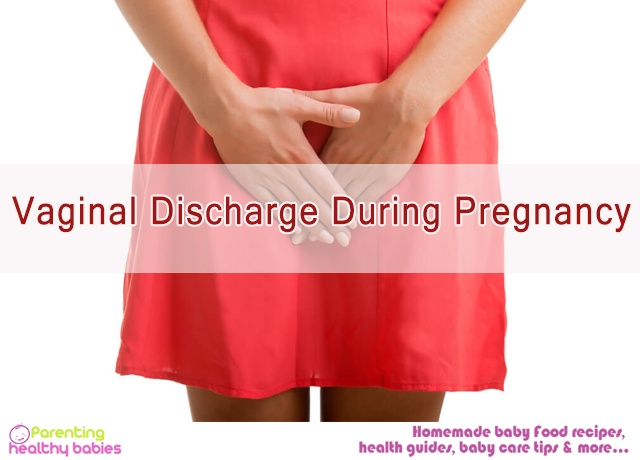Vaginal discharge is a very common phenomenon during pregnancy. Every expecting woman notices a thin, milky white and slightly smelly or odorless discharge from her vagina. This discharge usually increases from the first trimester and subsides after delivery. But sometimes vaginal discharge can be indications of infections in your vagina or urinary tract. Bacterial or yeast infections can also cause vaginal discharge.
Normal vaginal discharge is harmless. It requires no medical attention. Vaginal discharge is often an early sign of pregnancy. Sometimes an early labor can also be indicated by excessive vaginal discharge. There are many truths about vaginal discharge that you may not be aware of.
Here is the ultimate guide on vaginal discharge during pregnancy.
Normal vaginal discharge
Vaginal discharge is a very common occurrence for women. Even before pregnancy, women experience a whitish discharge from their vagina when she ovulates. This increases during pregnancy because of hormones.Vaginal discharge is very normal for pregnant women. It is usually a musky smelling, milky white fluid. This discharge actually helps to keep your vagina clean and prevent various infections.
Causes of normal vaginal discharge
Normal vaginal discharge that you see comes from your uterus. During pregnancy the blood flow in this region increases. This increases the vaginal discharge.
The increase in the level of your sex hormones is another cause of vaginal discharge. Increased level of sex hormones also increases the blood flow in your pelvis region. More blood flow results in heavy discharge during pregnancy.
How long does it last?
Vaginal discharge lasts all through your pregnancy. This discharge becomes heavy the more you progress towards your labor. At this stage, you might also notice a reddish tinge to your vaginal discharge. There is no need to panic. This happens because the mucus plug in your uterus loosens when you reach labor stage. As a result, the vaginal discharge is quite heavy in your last stage of pregnancy. It is important to notify your doctor if you see reddish tinge in your discharge anytime during pregnancy.
Ways to deal with vaginal discharge
What to do:
- You can wear pads during your pregnancy to deal with frequent vaginal discharge. Pads are safe to wear during pregnancy as they do not cause infections.
- Unscented panty liners can also be safe to wear at this time. Scented panties may cause infections in your vagina by reacting with the healthy bacteria there. This is why it is better to wear unscented panty liners.
- If the slight smell of the discharge makes you uncomfortable, you can try washing your vagina frequently with plain water. This can reduce the smell to some extent.
What not to do:
- Never use tampons for vaginal discharge during pregnancy. Tampons can put germs in your vagina. This can result in serious infections which can harm you and even the baby in your womb.
- Avoid using douche to clean your vagina. This might disturb the normal pH balance in your vagina. As a result, you can catch vaginal infections easily.
- Any kind of wipes or vaginal washes is also harmful at this time. You may feel like wiping or washing your vagina to get rid of the discharge. But it is best to avoid these as they contain scents which can cause infections.
Normal vaginal discharge as sign and symptom:
Early pregnancy
A thick milky white discharge is often one of the earliest symptoms of pregnancy. Especially if you have missed your period and you notice this kind of vaginal secretion, it can mean pregnancy.
Many women notice a heavy vaginal discharge when they have missed their regular bleeding. This can be one of the typical indications of an early stage of pregnancy. This fact is not commonly known by women.
Pregnancy induces a hormonal change in your body. The varying levels of hormone increases blood flow in your uterus. This causes your vagina to secrete a whitish curd like discharge.
It is better to check with a doctor if you have frequent vaginal discharge, especially when you have missed your period. However, not every woman experiences this secretion as sign of early pregnancy.
Ovulation
Vaginal discharge is also an indicator of ovulation. When your eggs are ovulating, it can cause a milky white creamy discharge from your vagina. It is a very normal phenomenon in women across the globe. This kind of vaginal secretion is pretty harmless. But you must always consult with a doctor in case you notice anything unnatural in the discharge.
Abnormal vaginal discharge
Vaginal discharge during pregnancy is not always harmless. It can be caused by different kind of vaginal and urinary tract infections. Bacterial infections, yeast infections etc can also cause vaginal discharge during pregnancy. Even sexually transmitted infections result in vaginal discharge. There may be other causes such as use of birth control pills prior to pregnancy or diabetes etc. You may notice that the discharge is foul smelling and greenish/yellow in color. This kind of vaginal secretion is abnormal and needs medical attention.
Infections are very common during pregnancy. The vaginal discharge during these infections is unlike normal vaginal discharge. Normal discharge is thin, whitish, slightly musky in smell and look like curdled milk. Whereas, vaginal discharge during any kind of infection is always foul smelling and looks yellowish, greenish or reddish brown. You must immediately check with your physician in such a situation.
Conclusion
Vaginal discharge is a very common and harmless phenomenon during pregnancy. It occurs due to hormonal changes in your body. You will notice an increase in the volume of your discharge as your delivery date approaches. After childbirth, this discharge will subside on its own. There is nothing to worry about vaginal discharge during pregnancy. However, sometimes this kind of discharge can be caused by bacteria or yeast infections. In that case, you must consult your physician. Vaginal or urinary tract infections can lead to severe complications if not treated in time.
Reference
https://www.babymed.com/vaginal-discharge-early-signs-and-symptoms-of-pregnancy
http://americanpregnancy.org/pregnancy-health/vaginal-discharge-during-pregnancy/
